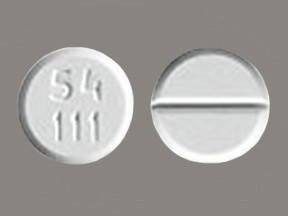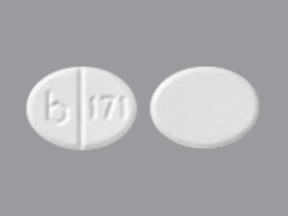MEFLOQUINE - ORAL
PHONETIC PRONUNCIATION: (MEFF-low-kwin)
COMMON BRAND NAME(S): Lariam
GENERIC NAME(S): mefloquine HCl
Uses
USES: This medication is used to treat and prevent malaria.
How to use MEFLOQUINE - ORAL
HOW TO USE: Read the Medication Guide provided by your pharmacist before you start taking mefloquine and each time you get a refill. If you have any questions, ask your doctor or pharmacist. Carry the information wallet card with you at all times. Take this medication by mouth as directed by your doctor. Take it with food or milk to prevent stomach upset. Do not take the medication on an empty stomach. Take each dose of this medication with a full glass (8 ounces or 240 milliliters) of water. If you have trouble swallowing the medication, the tablet may be crushed and placed in a small amount of water, milk, or other beverage. For children, the dosage is based on their weight. Early vomiting may occur in children after taking mefloquine. If vomiting occurs in your child after taking this medication, call the doctor right away to see if your child needs to take another dose of the medication. If vomiting continues, check with your doctor for a different medication to use in place of mefloquine. When using this medication to prevent malaria, it is usually taken once a week. The first dose of this medication should be taken one week before travel, or as directed by your doctor. Take this medication as prescribed for the full course of treatment. It is important that you do not miss any doses and that you take the drug on a regularly scheduled basis. Remember to take it on the same day each week. Upon returning from the malaria area, you should keep taking this medication for 4 more weeks. If you are unable to finish this course of mefloquine, contact your doctor. If this medication is being used for prevention of malaria, it is important to understand that it is still possible to contract the disease. Tell your doctor right away if you develop a fever. Malaria is best treated if therapy is started early.
Side Effects
Precautions
Interactions
Overdose
Images

- color
- off-white
- shape
- round
- imprint
- 54 111
Reviews
Faq for MEFLOQUINE - ORAL
Mefloquine is an oral medication commonly used as a treatment and prevention for malaria.
Mefloquine works by killing the malaria parasites in the red blood cells. It also prevents the spread of malaria by inhibiting the growth of these parasites.
Mefloquine should be taken exactly as prescribed by your healthcare provider. It is usually taken once a week, starting 1 to 2 weeks before entering a malaria-infected area and continuing for 4 weeks after leaving the area.
Common side effects of Mefloquine may include nausea, vomiting, diarrhea, headache, dizziness, difficulty sleeping, and vivid dreams. Serious but rare side effects may include confusion, depression, anxiety, hallucinations, and seizures.
Mefloquine is generally not recommended for pregnant women, especially during the first trimester. However, in some cases, the benefits may outweigh the risks. It is important to consult with your healthcare provider before taking the medication if you are pregnant or planning to become pregnant.
Mefloquine can be prescribed to children, but the dosage and administration should be determined by a healthcare professional based on the child's weight and age.
If you miss a dose of Mefloquine, take it as soon as you remember. However, if it is close to the time for your next scheduled dose, skip the missed dose and resume your regular dosing schedule. Do not take a double dose to make up for a missed one.
Yes, Mefloquine can interact with other medications, such as certain antiarrhythmics, antifungals, antiseizure drugs, and antacids. It is important to inform your healthcare provider about all the medications you are currently taking to avoid any potential interactions.
No, Mefloquine is primarily used for the prevention and treatment of malaria. It should not be used for other conditions unless specifically prescribed by a healthcare professional.
Warning
WARNING: Mefloquine may cause mental/mood or nervous system problems. Tell your doctor right away if you have any of these serious side effects, including: mental/mood changes (such as anxiety, depression, restlessness, confusion, hallucinations, suicidal thoughts/attempts), ringing in the ears, dizziness, lightheadedness, loss of balance, or trouble sleeping. These side effects may continue to occur even after stopping mefloquine and certain side effects (such as dizziness, ringing in the ears, loss of balance) may become permanent. This medication should not be used to prevent malaria in people who have mental/mood disorders (such as depression, schizophrenia).
Disclaimer
IMPORTANT: HOW TO USE THIS INFORMATION: This is a summary and does NOT have all possible information about this product. This information does not assure that this product is safe, effective, or appropriate for you. This information is not individual medical advice and does not substitute for the advice of your health care professional. Always ask your health care professional for complete information about this product and your specific health needs.

No Reviews Yet